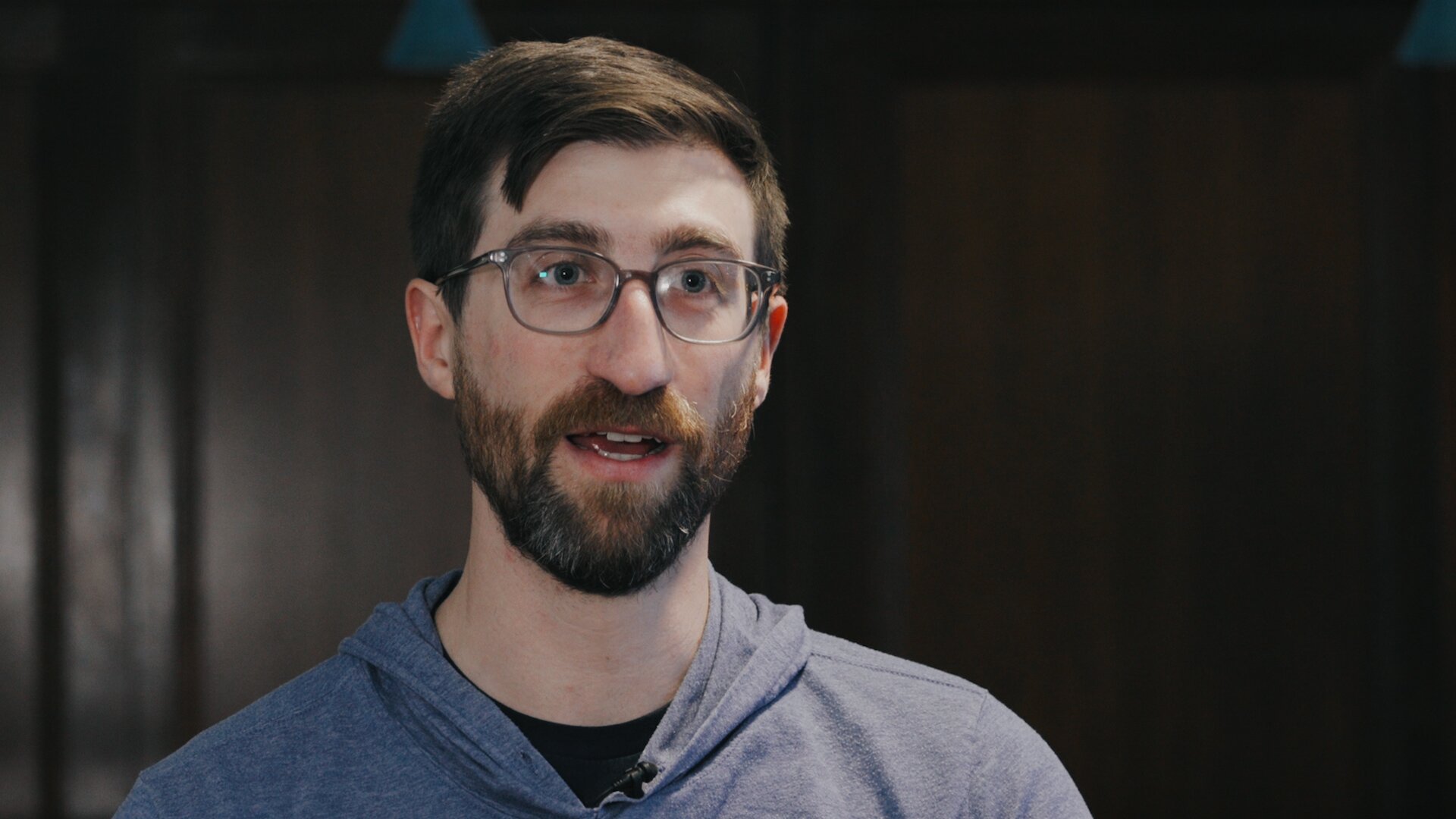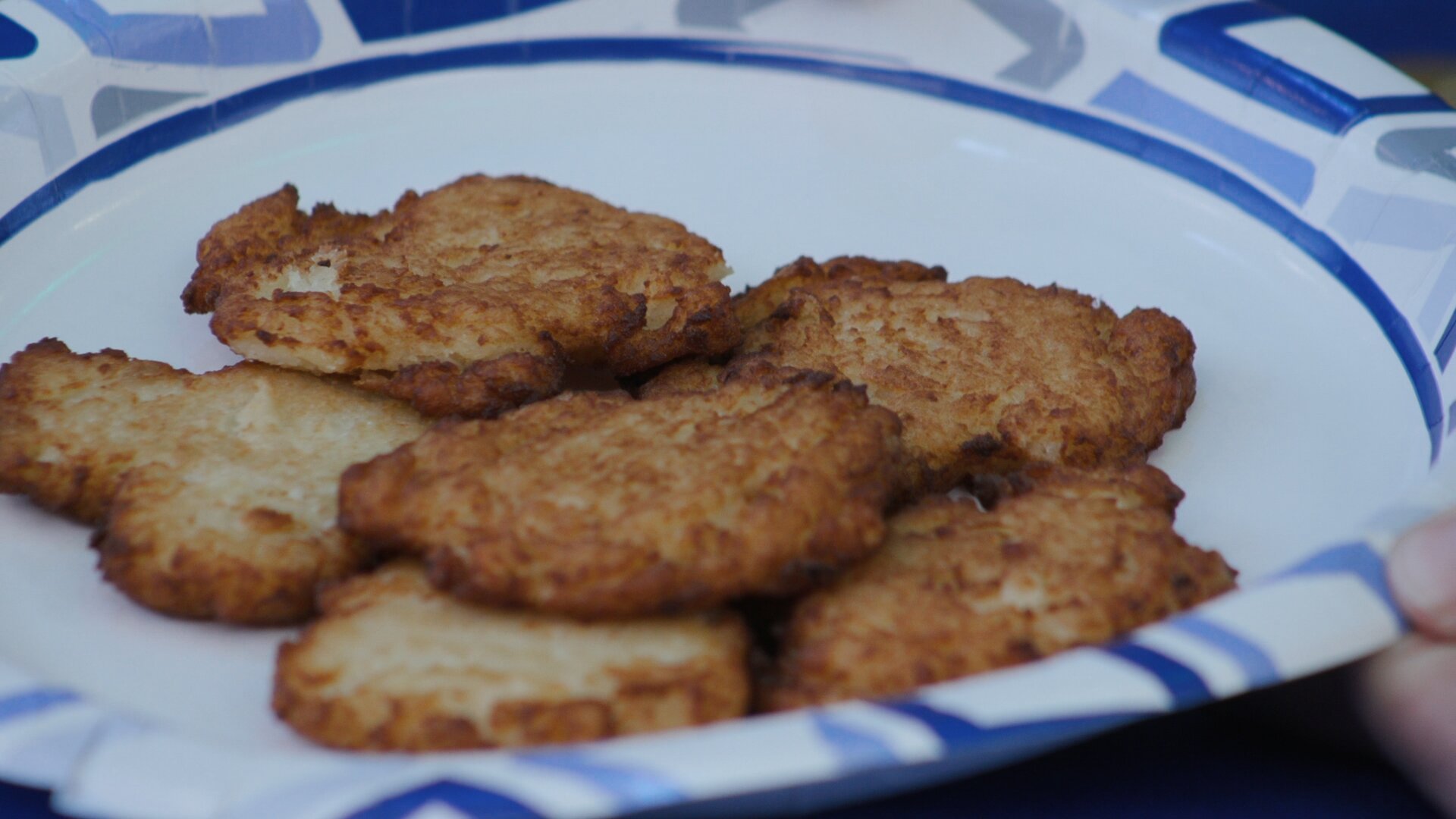Jewish community celebrates pride and resiliency for Hanukkah

DENVER — During the darkest time of the year for Americans, lights cover the outside of houses, fireplaces warm the inside of homes and for many, menorahs sit aflame as families and friends come together to celebrate Hanukkah.
“Hanukkah is actually kind of a minor holiday in the Jewish religion, but it's a pretty big holiday in the American-Jewish culture,” said Daniel Siegel, the engagement program manager at Staenberg-Loup Jewish Community Center in Denver.
In fact, he said, many elements of Hanukkah have been Americanized over the years as Christmas and other winter holidays get so much attention. This includes receiving eight presents over the eight days of Hanukkah.

“The presents tradition of Hanukkah that you might see in American Judaism is actually not a religious custom at all. It's part of the culture of being in America,” said Siegel.
Still Siegel said there are similarities between Hanukkah and other winter holidays, like a theme of light. He also believes people truly connect with the story of the Maccabees.
The story of Hanukkah dates back to thousands of years ago when the Holy Land in Israel was ruled by a group of Greeks who tried to force people there to accept Greek culture and beliefs instead of their own beliefs in God. Despite the odds being greatly against them, a band of Jewish people led by Judah the Maccabee defeated the Greeks and ran them out of town. They reclaimed the temple in Jerusalem and rededicated it.
While rededicating the temple, they found only a small amount of oil that hadn’t been contaminated by the Greeks. The oil was enough to last for one night, but somehow that oil was able to keep the temple’s menorah lit for eight days.
This story reveals where many of the religious traditions of Hanukkah come from including lighting a menorah for each of the eight nights of Hanukkah and eating lots of foods fried in oil. Siegel said a lot of fried foods are eaten around the holiday because of the miracle of the oil that kept the Maccabees’ menorah lit. That includes Sufganiyot, a type of jelly doughnut, and latkes – which are Siegel’s favorite.
“[I’m] a big Latke fan. I make them myself every year. Last year I made about 200 of them for a party I had,” Siegel explained.


There is also a traditional game played with a dreidel connected to Hanukkah. The dreidel is a four-sided top used in a gambling game. The dreidel’s roots date back to the time of the Maccabees, when Jews would use the tops to cover up any secret Judaism practices that were going on while the Greeks were in control of Jerusalem. Now families play the game and often stick to candy or chocolate coins called gelt instead of money for betting.
Whether families stick to the religious roots or embrace the Americanization of the holiday, Siegel says the true message of the holiday is knowing there will always be light even in the darkest of moments.
“I also really love the time together, and being able to showcase and be proud of our people and the resiliency that we have right now,” said Siegel. “I think it’s really important to share light about that.”
Alexis Kikoen is the senior producer at Rocky Mountain PBS. You can reach her at alexiskikoen@rmpbs.org.
Amanda Horvath is the managing producer with Rocky Mountain PBS. You can reach her at amandahorvath@rmpbs.org.
